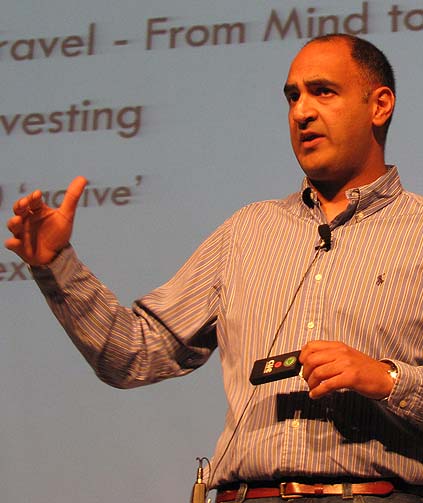We all have them. Those apps we open without thinking. Not because we need anything in particular, but because they feel… safe, in some…
An international perspective on SA startups [NetProphet]
 Angel investing came accidentally to UK-based Permjot Valia. As the sales and marketing director of Ernst & Young, he became involved in their entrepreneur programme, which in turn led to his new career of investing in startups.
Angel investing came accidentally to UK-based Permjot Valia. As the sales and marketing director of Ernst & Young, he became involved in their entrepreneur programme, which in turn led to his new career of investing in startups.
By his own admission, Valia’s success rate is a statistical anomaly: while an average of only 3% of investors successfully exit a startup via an IPO, the first company he invested in went public within just seven months.
Visiting Cape Town this week to work with local entrepreneurs, Valia shared his experiences, garnered over the course of his 25 or so investments, at the NetProphet conference in Cape Town. This is what he had to say:
On what makes a good deal for an angel investor:
An entrepreneur needs to have “coachability”, in terms of whether or not they can adapt to changing circumstances. They also need to be able to understand percentages. In other words, they need to show that they understand how, a 5% increase in sales or cost feeds through to make a massive variation in a startup’s valuation, for example.
On accelerating entrepreneurship in South Africa:
You need a big tech exit to demonstrate success: While failure is an orphan, success has many fathers. Suddenly, when there’s a big success, people take credit for that success and investors take notice.
Because there isn’t a history of big [IPO] exits [for startups] in SA, there’s a problem with recruiting talented staff to work at these companies. Potential employees would rather earn double at a big corporate than earn much less at a startup, but once they start hearing about startup successes, this sparks the entrepreneurial flame.
On South African entrepreneurs:
South Africans are forced to think globally. And that helps the angel investment cause because I don’t think you can have an investment proposition from an angel point of view that doesn’t have a global element.
While places like the UK hate to be reminded that they’re part of Europe, South Africans have multinational experience and are actively looking to elsewhere in Africa and internationally.
SA has agencies committed to help the entrepreneurial space succeed. It’s easy to give up and blame government as not helping, but there are really talented people in the country who are committed to making this space succeed.
On the challenges for South African entrepreneurs:
Pipeline management doesn’t exist in terms of support in the various stages of funding a startup. Things like investor bootcamps can help to get companies investment-ready – from there, the angels will follow.
Tax incentives are key to motivate investors because angel investment is so risky, especially with the interest rates in South Africa. Compounding this is the fact that entrepreneurial success in South Africa is relatively unproven.
On angel investors:
Most angels don’t invest for economic reasons – they do it because they really want to help.
The usual complaint from entrepreneurs is that there is no money, but in fact, the number one request I get from my angel friends is “have you seen any good deals?”.
The problem is not that there isn’t enough money – it’s that there aren’t enough good deals out there. I’ve seen the houses in Cape Town – there are lots of people with money here.
Angel investor training is key. Just because someone is rich doesn’t mean they know about investing.
On South Africans in general:
You’re actually very nice, and you LOVE your country!
